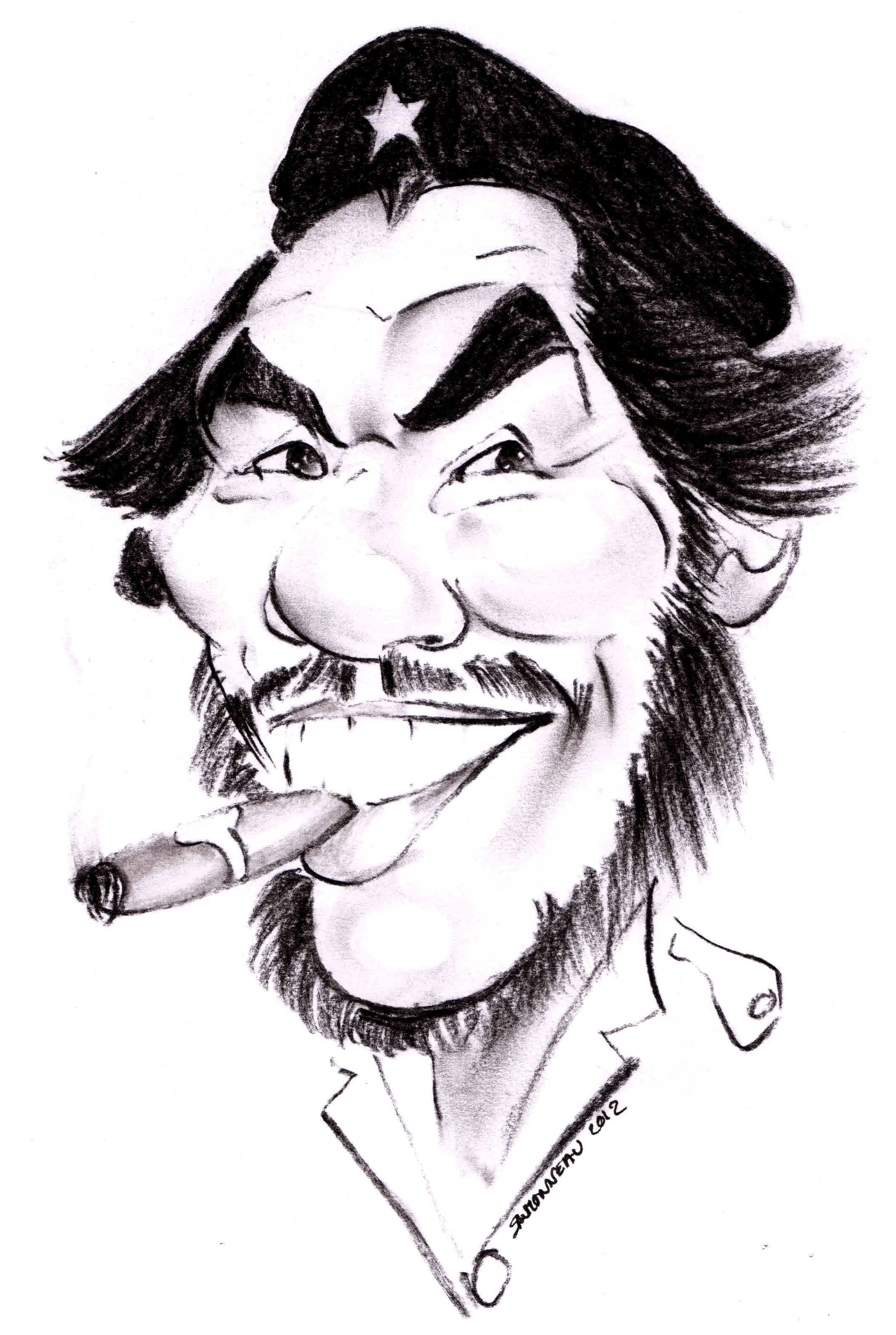Che Guevara.
Publié le 03/05/2013
Extrait du document

Che Guevara. Che Guevara, real name Ernesto Guevara (1928-1967), Latin American guerrilla leader and revolutionary theorist, who became a hero to the New Left radicals of the 1960s. Guevara was a major figure in the Cuban revolution led by Fidel Castro in the late 1950s and in the subsequent Castro government. The author of two books on guerrilla warfare, Guevara also tried to promote peasant-based revolutionary movements elsewhere in the developing world. Ernesto Guevara de la Serna was born into a middle-class family in Rosario, Argentina, on June 14, 1928. Troubled by asthma, he became a bookish child. He received a medical degree from the University of Buenos Aires in 1953. During and after his studies, Guevara traveled widely in Central and South America and became convinced that revolution was the only remedy for Latin America's poverty, disease, and social and political injustices. In 1954 he went to Mexico. He first met Castro there in 1955 and subsequently received training in guerrilla warfare along with Castro's exiled Cuban revolutionaries. In the late 1950s Guevara became Castro's main adviser and played an important role in Castro's guerrilla war against corrupt Cuban dictator Fulgencio Batista. After Castro came to power in 1959, he conferred Cuban citizenship on Guevara, who then formally adopted as his first name the nickname "Che," an Argentinian expression that roughly means "Hey, you" or "Hey, pal." In the Castro government Guevara served as president of the National Bank of Cuba from 1959 to 1961, when he became minister of industry. He carried out plans for land redistribution and for the nationalization of industry. A strong opponent of United States influence in the developing world, he also helped guide the Castro regime on its leftward path and was influential in persuading Castro to align Cuba with the Soviet Union and other Communist nations. But Guevara gradually fell from favor as Cuba's economy staggered in the wake of U.S. trade sanctions and unsuccessful government efforts at agricultural and industrial reform. While others wished to modernize Cuba's agriculture first, Guevara had pushed for rapid industrialization. Food shortages were one result. In 1965 Castro announced that Guevara had left Cuba to carry on revolutionary activities elsewhere; his whereabouts remained a secret. Guevara began in Africa, but after several months trying to train rebel forces in the Congo in guerrilla warfare, he concluded that the mission was a failure. In 1965 Guevara reappeared as a leader of rebel forces trying to overthrow the military government in Bolivia. With the help of the U. S. Central Intelligence Agency (CIA), the Bolivian army captured Guevara and his remaining guerrilla fighters on October 8, 1967. He was executed in the Bolivian village of La Higuera the following day. In 1997 Guevara's remains were exhumed from a grave near Vallegrande, Bolivia, and returned to Cuba, where he was reburied in the city of Santa Clara. Guevara became known as a revolutionary hero primarily after his death. In the year 2000 Time magazine named him one of the 100 most important people of the 20th century. Throughout his life, Guevara kept diaries. The diary of his travels through South America in the early 1950s, with his friend Alberto Granada, was turned into The Motorcycle Diaries (2004), a motion picture that introduced a new generation to Guevara's youthful idealism. Microsoft ® Encarta ® 2009. © 1993-2008 Microsoft Corporation. All rights reserved.
Liens utiles
- BAC che Guevara
- Che Guevara est sans aucun doute une figure emblématique de l'Amérique latine.
- Che Guevara - Geschichte.
- Guevara (Ernesto, dit Che ), 1928-1967, né à Rosario (Argentine), médecin argentin, guérillero et théoricien de la révolution dans le contexte latino-américain.
- Burri, Ernesto « Che » Guevara - photographie.































